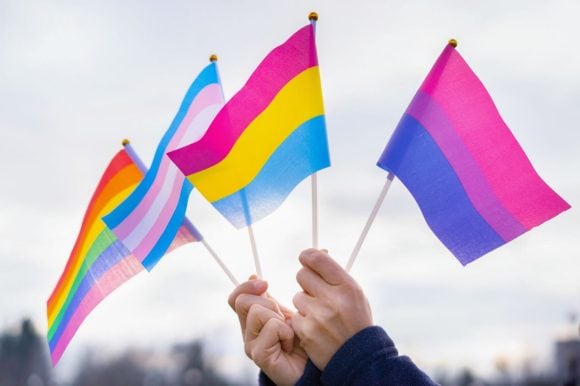We can all do better
Solidarity and equality must be seen through all lenses of diversity, whether it is around gender experience, race and ethnicity, sexual orientation, or ability.

![]()
header.search.error
Solidarity and equality must be seen through all lenses of diversity, whether it is around gender experience, race and ethnicity, sexual orientation, or ability.

After a pandemic year, particularly devastating to the LGBTQ+ community, we need to listen to be better allies.
On April 29th in 1996, the rock musical RENT premiered on Broadway, and asked, how do you measure a year? Five hundred twenty-five thousand six hundred minutes? Unlike any other musical before, RENT featured a multicultural cast of gay, straight, bisexual and transgender characters, struggling with life under the shadow of the AIDS epidemic. If the musical instead had taken place in 2020, how might these same characters fare during a pandemic year?
Research suggests that the answer would be, not well at all. While the stresses of the unknowable course of the pandemic were shared by many, persons in the LGBTQ+ community experienced additional work-related anxieties. McKinsey reports that despite the best efforts of firms and institutions in implementing diversity and inclusion policies, the needs of employees are still not being met. The study found that employees who identify as lesbian, gay, bisexual, transgender, queer, or gender nonbinary (LGBTQ+) feel isolated at work and fear they are likely to lose their job in greater numbers than their heterosexual counterparts.
As employers, we have a duty to our staff and colleagues to provide stress-free workplaces where everyone can thrive. After all, we each spend approximately one third of our lives working, 1700 hours working per year. When troubles foster in work environments, they easily spill over to our personal lives. Improvements have been made so by now, most every firm, organization, brand, institution has policies in place to guide staff on working together respectfully, borne in equality, and offering solutions when incidents do arise.
Fostering partnerships is a two-way street, so employers also have a duty to listen. Building policies, offering guidance and promoting support without listening to feedback or being open to new ways of handling situations is not only one-sided but ineffective long-term. Gen Z would call it toxic.
Truthfully, we all have a duty to listen. There was another unprecedented arrival in 2020 and that was a rise in accountability. Some call it cancel culture in its extreme, but it can also be a step toward a world in which we aren’t afraid to call each other out on our mistakes. Maintaining harmony in that world, however, relies on the ability to listen and accept that criticism.
PRIDE, but make it year-round
It’s important for us to get this right. Solidarity and equality must be seen through all lenses of diversity, whether it is around gender experience, race and ethnicity, sexual orientation, or ability . Working with my teams in philanthropy and Community Affairs, we support those who struggle for equality in access to education, healthcare, and a clean and safe world to live in. That work continues even after those goals are met—it’s our role to ensure all people not only survive, but also flourish, as equals.
You’ve seen our continued focus on sustainability, recently even updating our corporate purpose to reflect that. Now, UBS is revamping our diversity and inclusion pages, offering hub experiences to be updated year-round. Starting with LGBTQ+ inclusion topics, we’re adding employee stories, featuring thought leadership, and will be sharing news and updates. Check it out now, and make sure to come back and let us know how we are doing.
We’ve got five hundred twenty-five thousand six hundred minutes before we celebrate PRIDE again. Let’s use it as a benchmark—tell us how we can be better allies? What do you need to have a great year, every year?